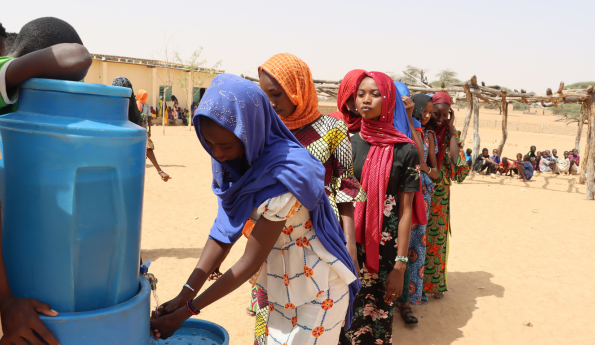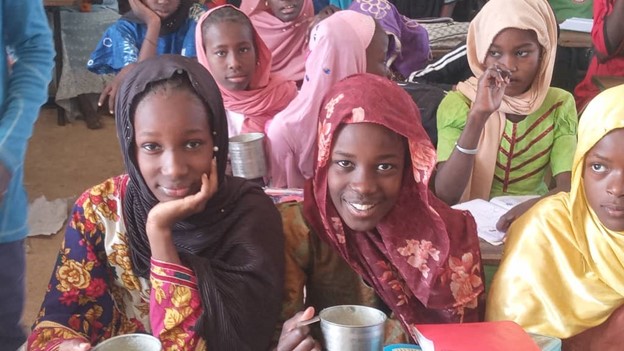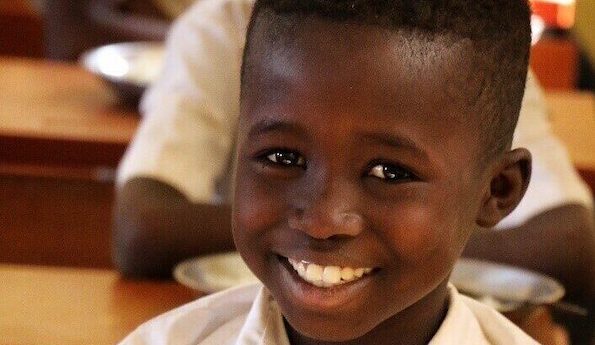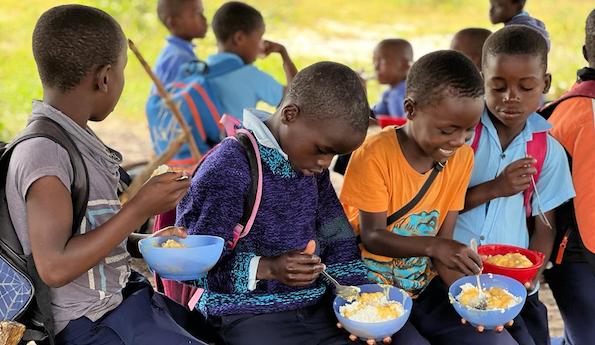School meals are an investment in the education, health, and well-being of the next generation. Programs focused on school meals have the potential to transform food systems, benefiting the entire community. Counterpart recently expanded its McGovern-Dole International Food for Education and Child Nutrition project into the Tagant region of Mauritania with Bridging the Future, adding 86 new schools which will feed nearly 16,000 children.
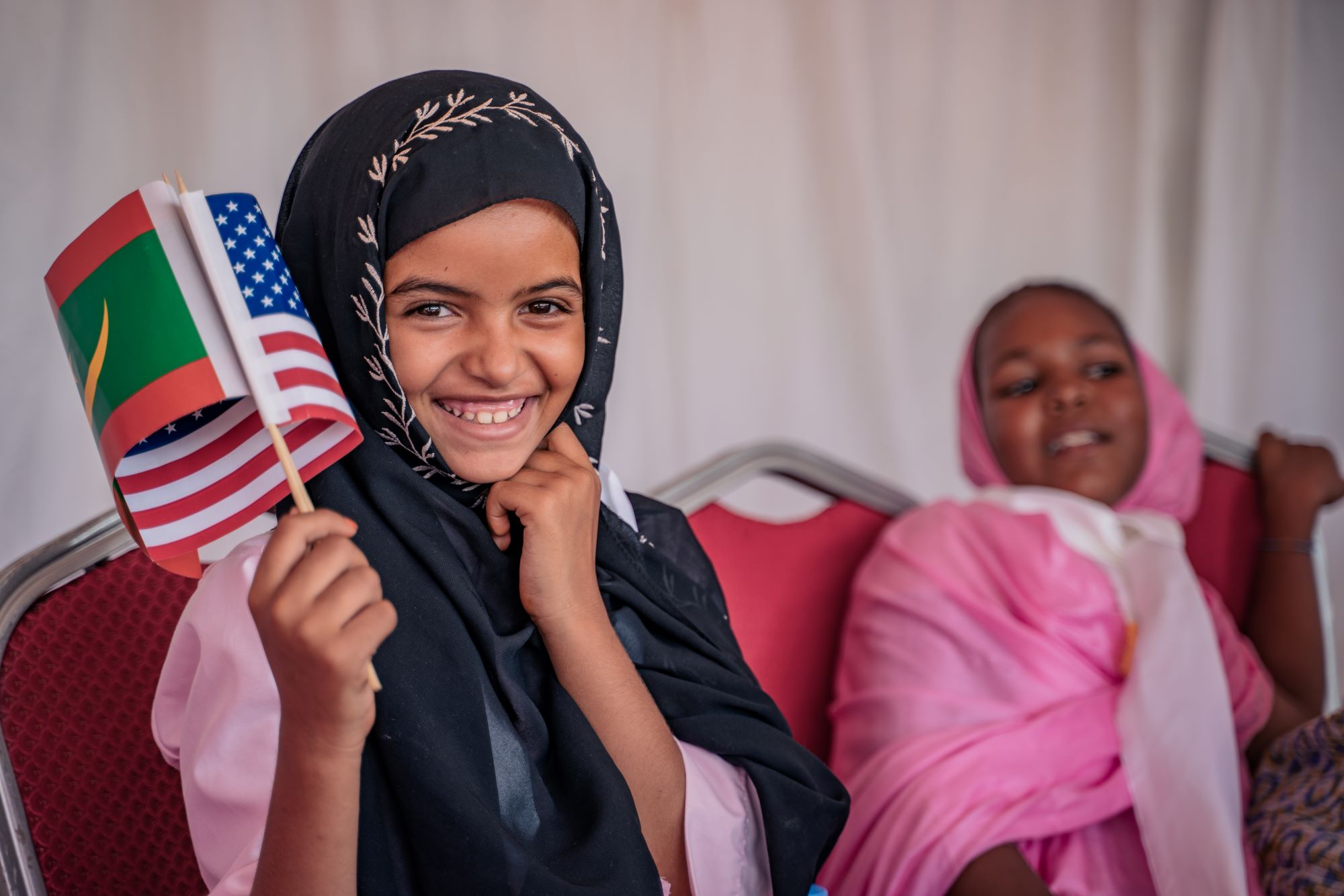
Students from Tidjikha primary school attending the launch event wave Mauritanian and American flags.
The USDA-funded project will provide daily nutritious meals to more than 110,000 Mauritanian students from 320 schools in the Brakna, Gorgol, and Tagant regions through 2027. Bridging the Future works in partnership with the government, key stakeholders, and local partner organizations EcoDev and Associates in Research and Education for Development to reduce hunger, improve health and nutrition, and strengthen literacy and the primary education system, contributing to a more self-reliant, productive society.
A launch event, held at Tidjikha primary school in October, celebrated the expansion of the project with a host of government officials, including the Minister of Education Moctar Ould Dahi, U.S. Ambassador to Mauritania Cynthia Kierscht, and USDA International Program Specialist Trinisha Samuels. More than 600 attended the ceremony, which also featured local stakeholders such as the governor of Tagant, divisional and sub divisional officers, mayors, school directors, as well as teachers, students, and parents.
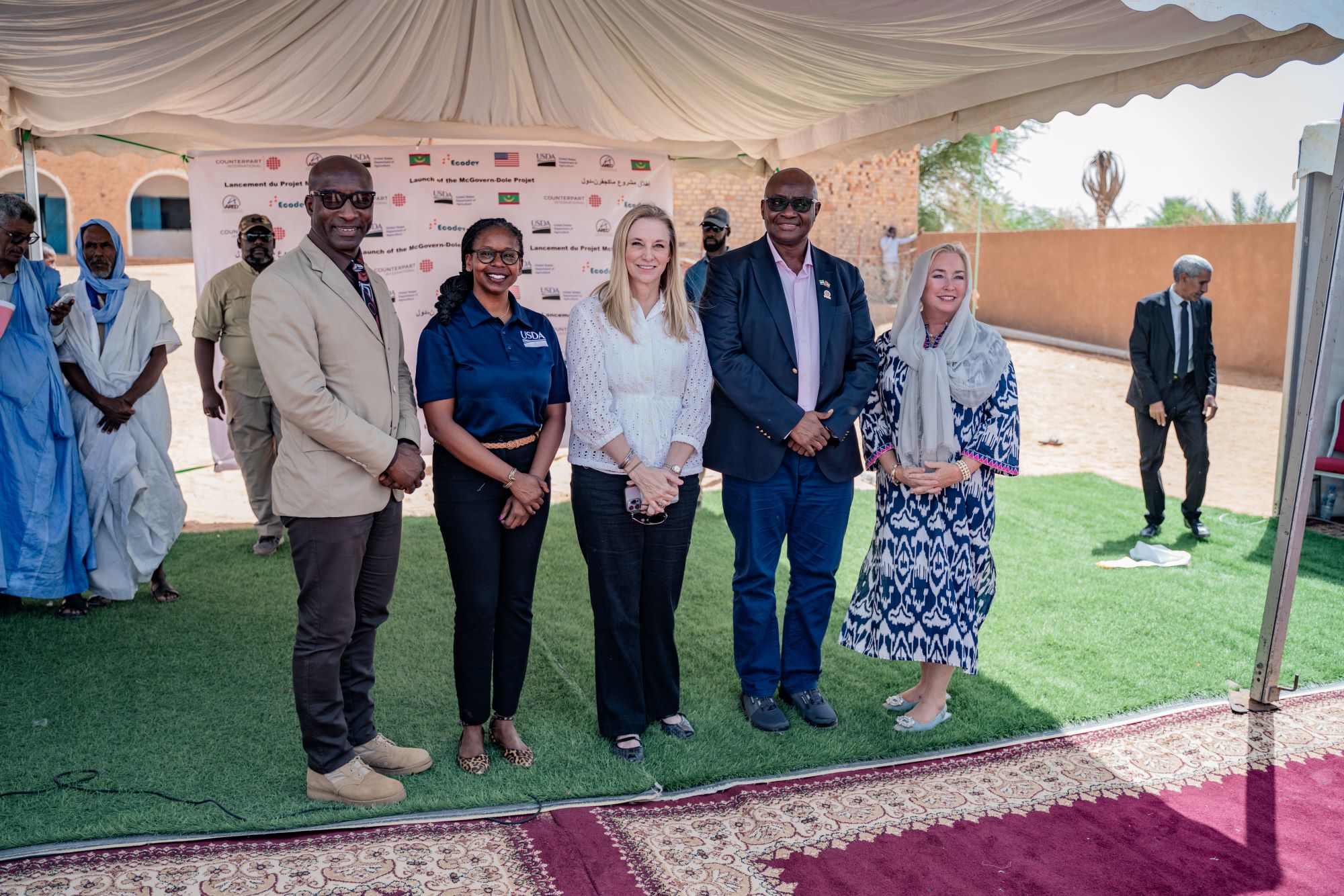
(Left to right) Diakite Alassane, USDA Mauritania project specialist, Trinisha Samuels, USDA international project specialist, and U.S. Ambassador to Mauritania Cynthia Kierscht attended the ceremony alongside Counterpart board member Ambassador Rashid Sesay and president and CEO Ann Hudock.
Highlights included speeches from the mayor of the Tidjikha commune, the PTA president, a student benefiting from the program, the president of the regional council, Counterpart’s president and CEO Ann Hudock, Dahi, and Kierscht.
“I celebrate this partnership with pride,” Kierscht said. “Any investment in children will produce positive dividends for Mauritania and the world beyond. These children here today are the leaders of tomorrow. Investing in them now provides them with better health and education and prepares them to better lead and contribute to a safer and more peaceful world.”
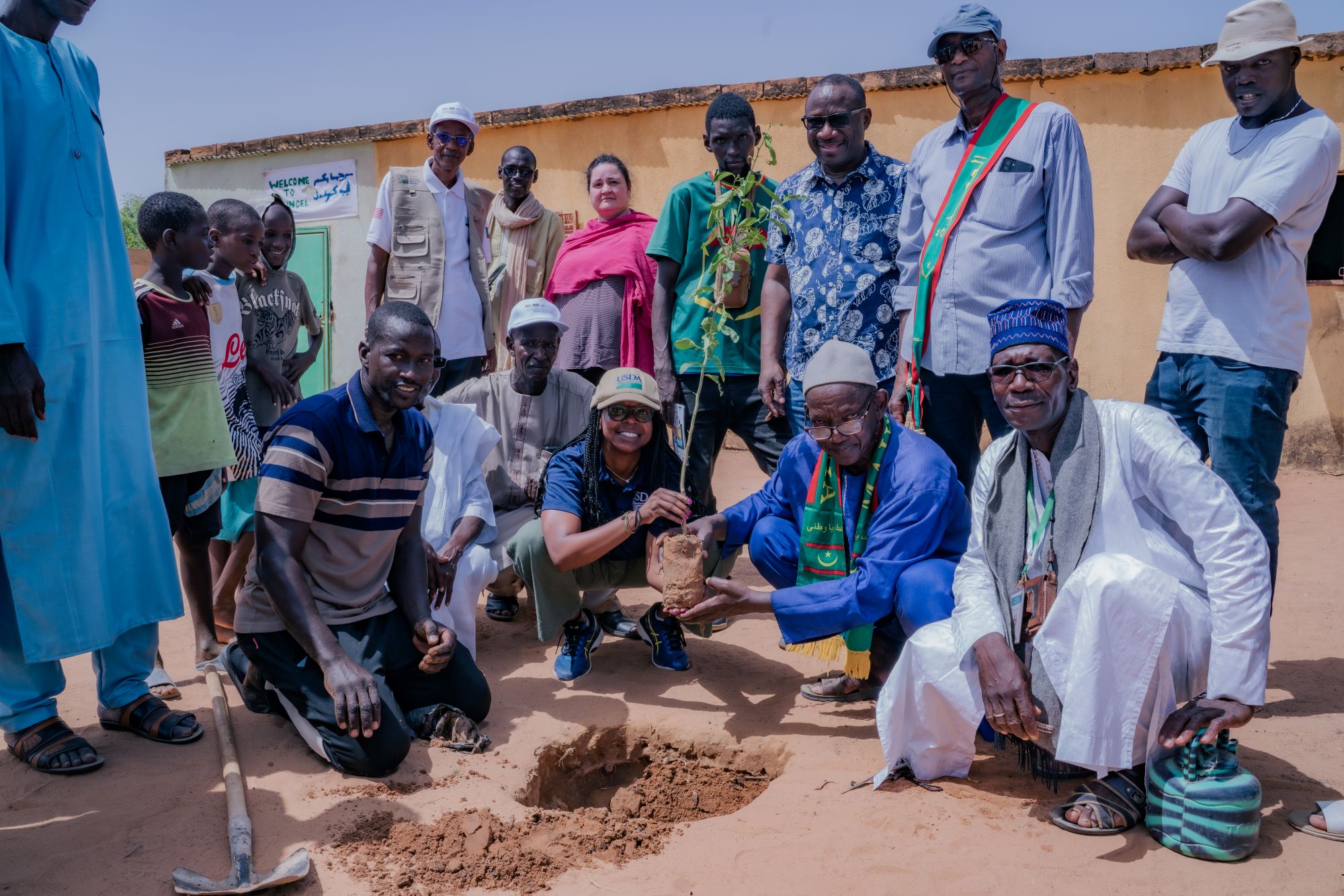
A symbolic tree planting concluded the launch event at Tidjikha primary school.
Dahi noted that “on behalf of the government, I am pleased to share our appreciation to the U.S. and especially USDA as this project will boost the school enrollment, attendance, and student learning capacities of the targeted three regions.”
After the ceremony, the guests visited the storeroom–newly constructed by the project and stocked with local and regional commodities like rice, cowpeas, millet flour, dried fish, and vegetable oil–and observed the children eating lunch. The launch concluded with a symbolic planting of fruit trees at the school.



